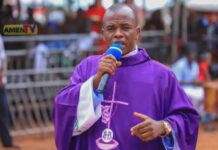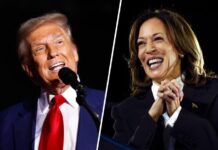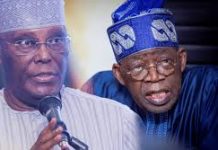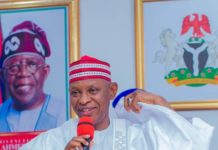Labour Party (LP), presidential candidate Peter Obi, on Monday, stated that the presence of a small group of nepotistic politicians is holding Nigeria captive for their interests.
Obi made this comment during his opening address at Chatham House in London, saying the event was an opportunity to challenge Nigerians toward a new thinking.
He spoke on the topic, ‘Nigeria’s 2023 elections: A vision for policy change and institutional reforms’.
According to him, the country is faced with “alarming” insecurity that has led to the loss of many lives and property, a significant decline in food and economic output, immense mental trauma, and in some cases contributed to pressures and disaffection with the Nigerian project.
“The economy is in crisis with a troubling debt profile worsened by oil theft of proportions once hard to imagine,” Obi said. “Two economic recessions in six years and lamentable power sector have significantly constrained manufacturing and social life.
“The Nigerian state is captive to an elite gang-up and a rental political economy that concentrate power in the hands of those who came to power and influence mainly through their own contrivances and influence, rather than the affirmation of the people and therefore do not have the incentive to serve the people.
“Even after exploiting the ethnic and religious cleavages, sentiments to ascend to political power, the very people on whose sentiments they grab power often become the primary victims of such political fraud that has rendered Nigeria a failing state with worsening leadership crisis.”
Consequently, the former Anambra State governor argued, Nigerian democracy has been on the wane, evident in nationwide tracking that reveals low voter turnout.
“But this seems to have turned around dramatically last year, allowing Independent National Electoral Commission (INEC) to register over 12 million new voters with many more complaining they wish to register but are unable to do so due to INEC’s deadline,” he said.
The LP standard bearer lamented Nigeria’s status as the poverty capital of the world, according to World Bank figures, having surpassed India in 2018.
A November 2022 report by the National Bureau of Statistics (NBS) further indicated that 133 million Nigerians are poor, despite the government reportedly spending N500 billion yearly on social investment programmes.
“This needs to change,” Obi said, adding that what separates poor and rich nations is attributed to health and education.
“But [a rich nation] provides quality health and educational system for a society, committed and focused leadership that can build and sustain public wealth as I was told by Prof. Donald Jacob of Kelloggs School of Management,” he said.
“In many ways, this is the heart of my remarks today, which are deeply rooted in my upbringing, particularly my mother’s consent that I leave a life of positive impact and I manage both personal and public resources most prudently for the sustainable inclusive growth of society.
“It is this principle that guided my stewardship as governor of Anambra State of Nigeria and led to our much-commended performance with some prize awards to show for it.”












































